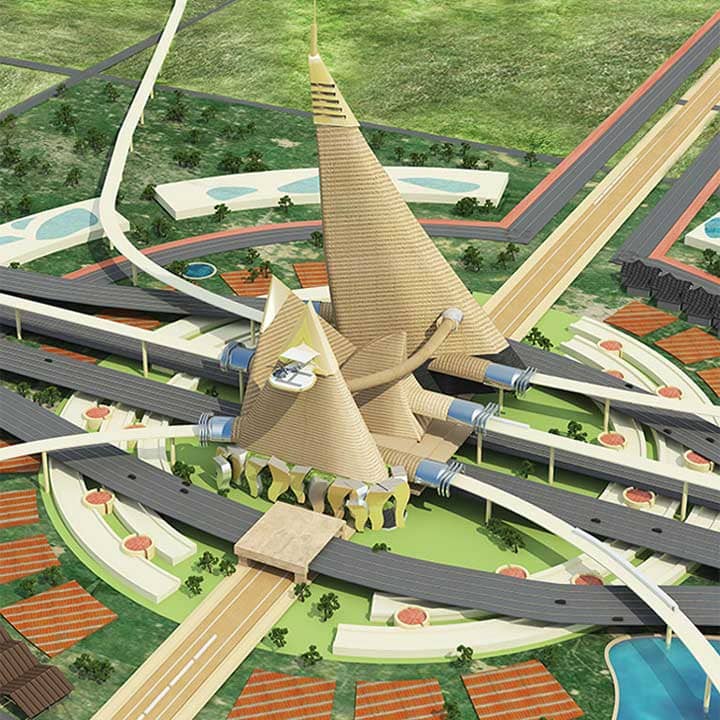India’s Deep-Tech Renaissance: Daring Minds, Daring Money, and Bold Innovation
India is experiencing a deep-tech revolution that is transforming the nation into a global powerhouse of innovation. The country’s deep-tech startup ecosystem is not only thriving but accelerating at an unprecedented pace. With over 3,000 deep-tech startups on the rise, fueled by daring minds and bold investments, India is making waves in industries that were once the realm of only the most advanced economies. From groundbreaking satellite ventures to semiconductor manufacturing, India is writing its own story of technological supremacy, and the world is taking notice.
The Rise of Deep-Tech Startups in India
India’s deep-tech startup scene is a dynamic blend of ambition, intellect, and entrepreneurial spirit. The country’s rich history of scientific discovery and innovation—dating back to the time of ancient civilizations like the Harappan—has laid the groundwork for a new generation of tech disruptors. Today, these startups are tackling some of the world’s most pressing challenges, from space exploration to semiconductors, all while positioning India as a leader in the global technology race.
The sheer scale of India’s deep-tech ecosystem is remarkable. With over 3,000 startups in fields such as artificial intelligence (AI), quantum computing, biotechnology, aerospace, and more, the country is rapidly advancing into industries previously dominated by the world’s tech giants. These startups are not only pioneering new technologies but also shaping India’s future as a hub for cutting-edge innovation.
Agnikul and GalaxEye: Aiming for the Stars
Among the most exciting stories emerging from India’s deep-tech sector are the achievements of aerospace startups like Agnikul and GalaxEye. These companies are dreaming big—literally reaching for the stars—and their innovative solutions are putting India on the global space map.
Agnikul, a Chennai-based startup, is making waves with its innovative satellite launch technology. The company is developing a fully customizable, small satellite launch vehicle designed to provide cost-effective and efficient access to space. Their game-changing approach to satellite launch services is making it easier for smaller nations, private companies, and research institutions to send their satellites into orbit. By leveraging India’s rich aerospace heritage and combining it with cutting-edge technology, Agnikul is helping to shape the future of space exploration.
GalaxEye, another Indian aerospace startup, is working on a revolutionary satellite imaging solution that promises to redefine Earth observation. The company’s unique satellites, equipped with advanced optical payloads, are designed to provide real-time, high-resolution images of the Earth. These images have the potential to revolutionize industries like agriculture, defense, and urban planning by providing unprecedented insights into the planet’s surface. GalaxEye is tapping into the growing demand for space-based data, and its innovations will play a crucial role in India’s future in the global space economy.
Tata Electronics: A Semiconductor Revolution in Dholera
While space technology is one area where India is making a bold statement, the country is equally committed to revolutionizing its semiconductor industry—an area that is critical to the global tech supply chain.
One of the most ambitious projects in India’s semiconductor space is being led by Tata Electronics, which is building a state-of-the-art semiconductor fab in Dholera, Gujarat. This facility is set to play a pivotal role in the future of India’s tech landscape and represents a significant step towards reducing the country’s dependence on imported semiconductors. With the world’s growing demand for microchips, especially in industries like electronics, automotive, and telecommunications, this semiconductor fab is a game-changer for India’s manufacturing capabilities.
Dholera, a city that has long been associated with the ancient Harappan civilization, is now the backdrop for a modern-day technological revolution. Tata Electronics’ semiconductor manufacturing facility is expected to boost India’s position in the global semiconductor market, help reduce supply chain vulnerabilities, and provide a much-needed boost to the nation’s self-reliance in tech manufacturing. It’s a bold and visionary project that marks the beginning of a new era in Indian tech innovation.
A Future Built on Daring Innovation
What sets India’s deep-tech ecosystem apart is the combination of bold vision, cutting-edge research, and robust investment. Indian entrepreneurs and innovators are not waiting for global trends to dictate the future—they’re actively shaping it. The funding pouring into the country’s deep-tech startups is a clear signal that India’s potential is being recognized, both domestically and internationally.
The “daring money” supporting these startups is coming from a mix of venture capital firms, government initiatives, and corporate giants. With the Indian government’s focus on fostering innovation through policies and initiatives such as “Startup India,” “Atmanirbhar Bharat,” and “Make in India,” the startup ecosystem is flourishing like never before. India’s rising global stature as a hub for innovation has attracted venture capitalists from around the world who see the country as an emerging market with unlimited potential.
The Legacy of the Harappan Civilization and the Tech Renaissance
India’s deep-tech renaissance is not only about new technologies; it’s also about honoring the country’s rich history of scientific and technological advancements. The ancient Harappan civilization, known for its advanced urban planning, engineering, and metallurgy, laid the foundation for India’s modern-day innovation ecosystem. Today, India’s entrepreneurs are standing on the shoulders of giants—taking the best of India’s intellectual heritage and building on it with futuristic technology.
From the semiconductor fab in Dholera to the space-bound startups like Agnikul and GalaxEye, the deep-tech revolution unfolding in India is rooted in a legacy of ingenuity and problem-solving. The bold ideas emerging from Indian startups today are the latest chapter in a long history of scientific discovery, and they have the potential to reshape industries across the globe.
Conclusion: A New Age of Technological Leadership
India’s deep-tech revolution is a story of ambition, audacity, and achievement. With over 3,000 startups propelling the country into the future, India is emerging as a global leader in fields ranging from space exploration to semiconductor manufacturing. Startups like Agnikul and GalaxEye are helping India reach for the stars, while Tata Electronics’ semiconductor fab is setting the stage for a new era in tech manufacturing.
The innovation happening in India today is a testament to the country’s bold vision, a vision rooted in a rich scientific and cultural heritage that dates back to the ancient Harappan civilization. With daring minds, daring money, and a future built on the principles of innovation, India is positioning itself as a force to be reckoned with in the global tech arena.



